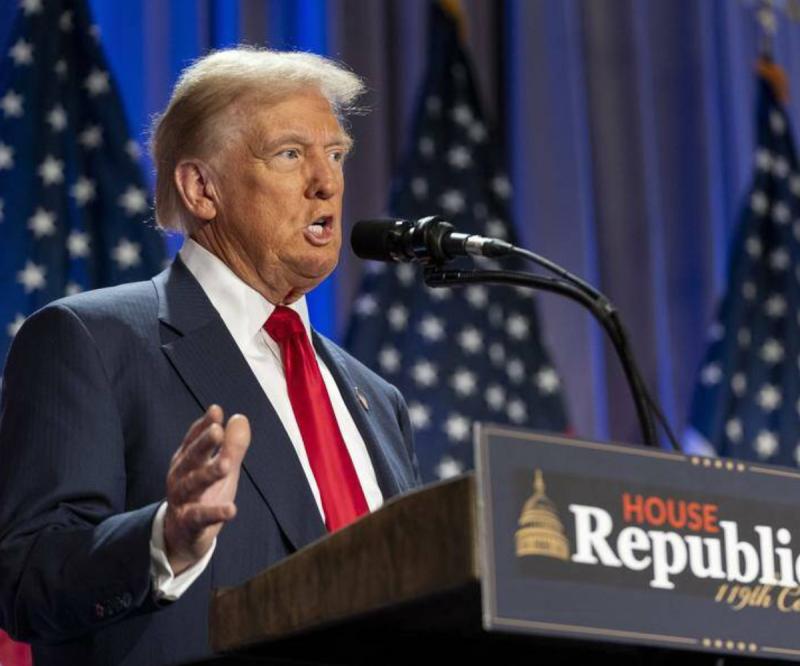
- agastya9
- 25 Nov 2024 11:35 PM
- TrumpTariffs, Canada, Mexico
Key Details of the Tariff Plan
-
Mexico and Canada:
Trump plans to implement a 25% tariff on all goods imported from Mexico and Canada, framing it as a measure to combat illegal drugs, particularly fentanyl, and to address border security concerns.In a post on Truth Social, Trump stated, “This Tariff will remain in effect until such time as Drugs, in particular Fentanyl, and all Illegal Aliens stop this Invasion of our Country!”
-
China:
Additional tariffs of 10% on Chinese goods will also be imposed, with Trump citing China's role in the fentanyl crisis as the primary reason.Trump emphasized his frustration with prior discussions with Chinese officials, stating, “Until such time as they stop, we will be charging China an additional 10% Tariff on all of their many products coming into the United States.”
Economic Implications
-
Trade Disruptions:
Mexico and Canada are the U.S.’s top two trading partners, collectively accounting for nearly 30% of total trade. Industries likely to be impacted include vehicle manufacturing, dairy, paper products, and building materials such as wood. -
Increased Costs:
Economists predict that tariffs on imports could cost U.S. consumers an additional $78 billion annually. For instance, a $50 pair of shoes might cost $65, while a $2,000 mattress could increase by $190. -
Retail Impact:
Retailers such as Five Below, Wayfair, and Dollar Tree could face significant challenges, according to industry analysts.
Potential Challenges
The proposed tariffs are expected to face resistance from businesses, economists, and Congress. Critics argue that such measures would violate the U.S.-Mexico-Canada Agreement (USMCA), a trade deal negotiated during Trump’s first term that took effect in July 2020.
Arturo Sarukhan, Mexico's former ambassador to the U.S., suggested that these tariffs could breach the terms of the USMCA, potentially destabilizing the agreement.
Historical Context and Opposition
Trump’s tariff policy has faced criticism for its potential to act as a “sales tax” on American consumers. During a presidential debate, Democratic opponent Kamala Harris highlighted the economic burden such tariffs could impose, calling them detrimental to everyday Americans.
Despite opposition, Trump has maintained that these tariffs are necessary to hold other countries accountable, stating, “Other countries are going to finally, after 75 years, pay us back for all that we’ve done for the world.”
Trump’s proposed tariffs represent a dramatic shift in U.S. trade policy, with far-reaching implications for international relations and the domestic economy. While they aim to address critical issues like drug trafficking and border security, they are likely to spark debate over their economic and legal ramifications.





































